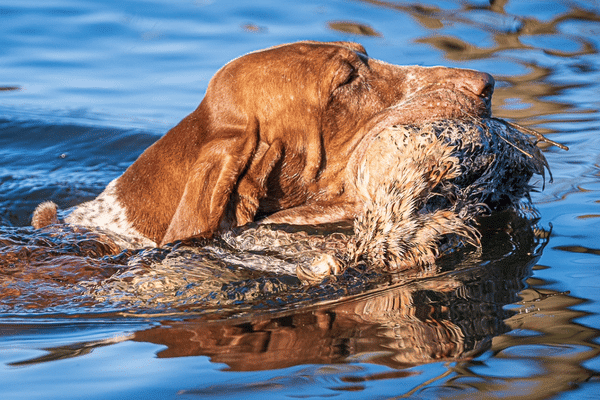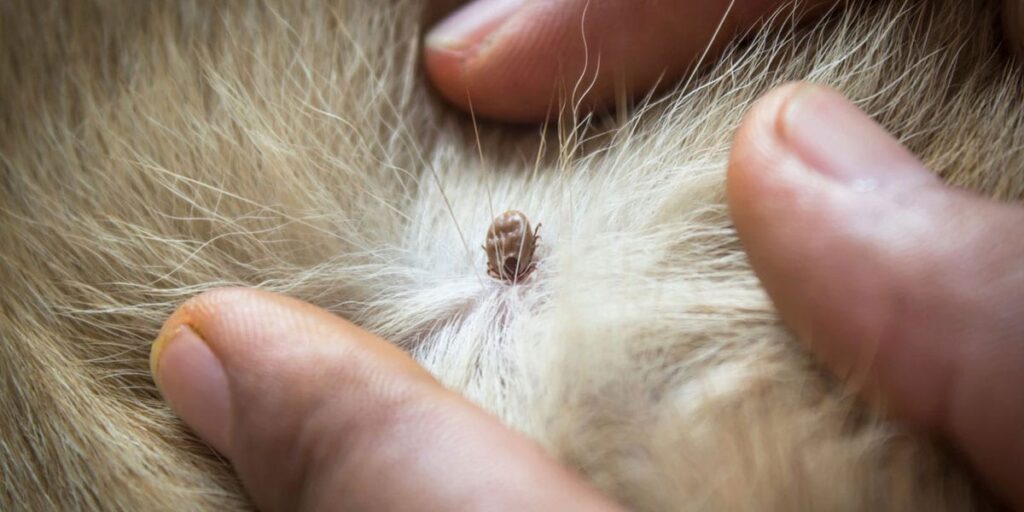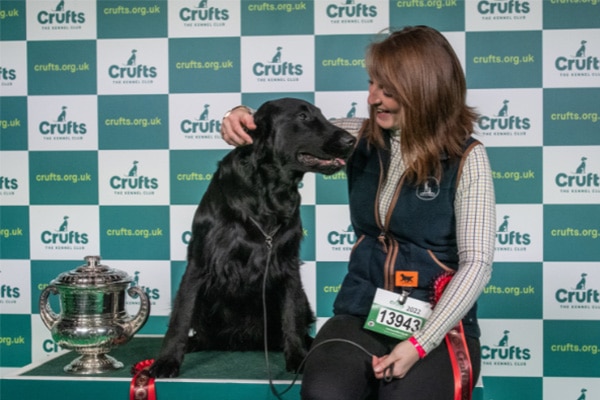
Non-traditional gundogs v their more common counterparts
Martin Puddifer takes a closer look at non-traditional gundogs that are every bit as successful as the more common known ones.
Get information on the legal shooting season for mammals and birds in the UK.
Learn about our current conservation projects and how you can get involved.
Comprehensive information and advice from our specialist firearms team.
Everything you need to know about shotgun, rifle and airgun ammunition.
Find our up-to-date information, advice and links to government resources.
Everything you need to know on firearms law and licensing.
All the latest news and advice on general licences and how they affect you.


It might be November but the unseasonably mild weather, coupled with the damp air means that ticks are currently causing a real issue on the daily walks and days out shooting.
Working dogs are inherently more at risk of being exposed to a tick bite due to the terrain we train and work them over. Heather, woodland, bracken and coarse grassland are all home to ticks. And unfortunately, they are more than willing to use our trusty canine companions as a host.

The fact is that ticks are more than a mere nuisance. They can carry nasty tick-borne diseases such as Lyme disease and our dogs can suffer from these just as we can.
While humans are taught to look for a bullseye rash on their skin as the first indication of Lyme disease, for dogs it is much trickier. Symptoms they can develop, such as fever, limping or lethargy are not pathognomonic. They can also start months after the tick has bitten your dog.
Lyme disease can also affect kidneys, which can lead to vomiting, lethargy, lack of appetite and weight loss. This form of the disease is less common but often fatal. If you think your dog has Lyme disease, ask your vet to carry out the relevant tests. Once diagnosed, they can be treated with antibiotics.

Other tick-borne diseases, such as babesiosis which is prevalent in some European countries, have also been observed in the UK. Small pockets of infected tick populations are found around the country. This disease is caused by a tiny parasite that can infect the red blood cells of dogs with the majority becoming acutely ill.
Symptoms include very pale gums, dark urine and even collapse from severe anaemia. Babesiosis generally responds well to treatment if caught early, but it can be life threatening if treatment is delayed.
In terms of tick-borne diseases, prevention is key. Recent studies have shown that ticks only release saliva (the vector for the diseases) when latched on for about 24 hours. This means that if we remove the tick during this time frame, we have a good chance of preventing infection.
There are several products which aim to kill ticks within this critical 24-hour window but can also repel them, stopping them latching on in the first place. In addition there is also a vaccine that can protect dogs against Lyme disease, so speak to your vet about treatment options most suitable for your dog.

Ensure that you do a thorough search thorough search of your dog’s fur after returning home from any outdoor activity. Pay special attention to their face, ears, chest and legs. If you do find a tick, use a specialist tick removal tool to pull it out safely before disposing of it.
If you are taking your dog abroad, have a chat with your vet about what canine diseases are common in the country you’re travelling to (including tick-borne diseases, such as babesiosis) and what steps you can take to avoid them.

Martin Puddifer takes a closer look at non-traditional gundogs that are every bit as successful as the more common known ones.
Andrew Profit, a keen stalker and outdoor enthusiast, talks about living with Lyme disease.

Flat-coated retriever Ruger, owned by Helen Fox and handled by daughter Megan, was crowned overall winner of BASC’s Gamekeepers’ classes at Crufts 2022.
Sign up to our weekly newsletter and get all the latest updates straight to your inbox.
© 2023 British Association for Shooting and Conservation. Registered Office: Marford Mill, Rossett, Wrexham, LL12 0HL – Registered Society No: 28488R. BASC is a trading name of the British Association for Shooting and Conservation Limited which is authorised and regulated by the Financial Conduct Authority (FCA) under firm reference number 311937.
If you have any questions or complaints about your BASC membership insurance cover, please email us. More information about resolving complaints can be found on the FCA website or on the EU ODR platform.
This website uses cookies so that we can provide you with the best user experience possible. Cookie information is stored in your browser and performs functions such as recognising you when you return to our website and helping our team to understand which sections of the website you find most interesting and useful.
Strictly Necessary Cookie should be enabled at all times so that we can save your preferences for cookie settings.
If you disable this cookie, we will not be able to save your preferences. This means that every time you visit this website you will need to enable or disable cookies again.
This website uses Google Analytics to collect anonymous information such as the number of visitors to the site, and the most popular pages.
Keeping this cookie enabled helps us to improve our website.
Please enable Strictly Necessary Cookies first so that we can save your preferences!
More information about our Cookie Policy